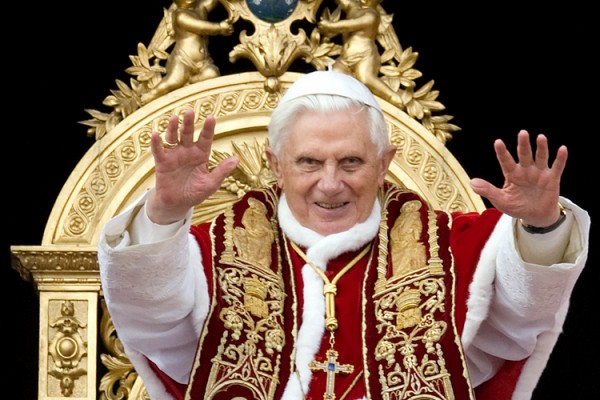 When the last conclave that elected Pope Benedict XVI was underway, a colleague stopped by my office and remarked on CNN’s seemingly nonstop coverage. My non-Catholic colleague’s point boiled down to: “I don’t get it. Why should we care about this?” Stipulating that the world’s many Catholics care deeply, why should it matter to the rest of the world? We had a brief debate over why nations still sent ambassadors to the Vatican; why presidents and prime ministers sought and received papal audiences. It’s been over a century and a half since the Catholic Church controlled substantial lands, longer since it did what national governments do: levy taxes, lead armies, and defend territory. The Vatican’s diplomatic status is based upon what it once was, not what it is. The leader of the world’s 1.2 billion Catholics certainly has global standing, but does he have a leading place in international diplomacy?
When the last conclave that elected Pope Benedict XVI was underway, a colleague stopped by my office and remarked on CNN’s seemingly nonstop coverage. My non-Catholic colleague’s point boiled down to: “I don’t get it. Why should we care about this?” Stipulating that the world’s many Catholics care deeply, why should it matter to the rest of the world? We had a brief debate over why nations still sent ambassadors to the Vatican; why presidents and prime ministers sought and received papal audiences. It’s been over a century and a half since the Catholic Church controlled substantial lands, longer since it did what national governments do: levy taxes, lead armies, and defend territory. The Vatican’s diplomatic status is based upon what it once was, not what it is. The leader of the world’s 1.2 billion Catholics certainly has global standing, but does he have a leading place in international diplomacy?
I was five when the newly-installed John Paul II visited the U.S.; a modestly more aware teenager when he befriended President Reagan and stood at the center of a dialogue between the U.S., USSR and Poland’s Solidarity movement that began the end of Soviet communism. There is plenty of room for debate about what substantive role John Paul II actually played in aiding Solidarity’s emergence and the eventual end of Soviet communism. But the fact that he had a prominent role is undeniable. President Reagan engaged John Paul II in the series of arms control summits that defined his second term, and proponents of John Paul’s role tend to be strong supporters of Reagan.
Personality no doubt played a role. As the extroverted actor to Benedict’s bookish theologian, John Paul II was a natural diplomat, and was adept at bridge building. Looking back on his prominent public statements, his 1995 speech to the United Nations was one example of outreach on the international stage that touched on issues crossing the borders of Catholic theology — human rights in particular. To John Paul’s critics, this public face emphasizing openness and engagement was at odds with the fundamental conservatism reflected in his leadership of the church. But his public persona had the power to do what some Hollywood stars have done in recent years: use their celebrity to draw the media towards humanitarian issues languishing for sustained attention. By contrast, Benedict XVI’s public pronouncements too often stirred controversy; obscure references to Islam in his 2006 Regensburg speech caused unnecessary uproar at a time when comity among world religions was especially prized.
Would Catholics and non-Catholics welcome a pope more outspoken on global issues? Has the deep moral seriousness of the scandals confronting the church impugned its moral authority to an extent that would prevent future popes from doing so effectively? These are reasonable questions. Many of Benedict’s critics doubled down upon hearing of his resignation; John Cassidy in the New Yorker has a particularly articulate and unsparing critique of his record. But since recent history includes uses of the papal pulpit to both unite and divide, international diplomatic skills are likely to play some role in the choice of the next pontiff.